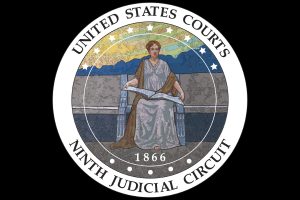MetArt Wins Appeal Over Jurisdiction in Porn.com Copyright Infringement Case
 SAN FRANCISCO — Jason Tucker, who runs a leading anti-piracy management and enforcement company, believes that a recent federal court of appeals ruling offers a warning shot to copyright infringers trying to avoid U.S. courts: They can run but they can’t hide.
SAN FRANCISCO — Jason Tucker, who runs a leading anti-piracy management and enforcement company, believes that a recent federal court of appeals ruling offers a warning shot to copyright infringers trying to avoid U.S. courts: They can run but they can’t hide.
A three-judge panel with the 9th U.S. Court of Appeals earlier this month held that a lower court erred in finding a lack of personal jurisdiction with Porn.com or any of the other foreign entities and individuals named as defendants in a suit waged by Santa Monica, Calif.-based MetArt Network.
“This ruling will serve as a standard to defining what is necessary to establish jurisdiction,” said Tucker, president of Battleship Stance and an industry veteran who is serving as plaintiff’s consultant for MetArt, which filed the infringement suit against Porn.com, based in Seychelles; MXN Ltd., based in Barbados; and Netmedia Services Inc., based in Canada.
Tucker told YNOT that the recent ruling “affirmatively establishes that pirates located outside the U.S. will be held accountable here when taking advantage of the U.S. market.”
“In this case MetArt is doing what is necessary to protect its library,” Tucker said. “If site operators spent as much time and money to try and settle claims as they do trying to avoid U.S. court, these cases would close out sooner and probably be a lot cheaper.
In the lower court ruling last year, U.S. District Judge David G. Campbell found that MetArt had no personal jurisdiction over Porn.com.
MetArt, which filed the suit three years ago, alleged that scraped content was found on four Porn.com websites. Porn.com, in response, claimed that the poached videos were uploaded by third-party users.
Campbell earlier granted the defendants’ motions to dismiss and terminated the case on the issue of personal jurisdiction.
The 9th Circuit, however, provided another lawsuit lifeline for MetArt by reversing Campbell’s decision, finding that Federal Rule of Civil Procedure 4(k)(2), the federal long-arm statute, authorizes a district court’s exercise of personal jurisdiction over a defendant if (1) the claim arises under federal law; (2) the defendant is not subject to jurisdiction of any state court of general jurisdiction; and (3) exercising jurisdiction comports with due process.
Porn.com defendants acknowledged that the first two criteria were met.
So was the third, the 9th Circuit said, because it is alleged that there were intentional acts of copyright infringement aimed at the U.S. and causing harm here.
“[MetArt] alleges that [Porn.com] unauthorized display of its copyrighted videos, which [MetArt] makes available for a fee, resulted in lost profits and reputational damage, and that the majority of its revenue is generated in the U.S.,” the 9th Circuit said in its decision. “Thus, as we must construe all facts in [MetArt’s] favor, it is not unreasonable to infer that the foreseeable economic harm alleged would have been suffered in the U.S.”
In its ruling arising out of forum-related activities, the 9th Circuit said that Porn.com “failed to show that exercising jurisdiction would be unreasonable and violate due process.”
“Personal jurisdiction is proper as to all owners or operators of Porn.com. On remand, the district court should determine which parties are owners or operators of Porn.com in addition to Cyberweb,” the court said in a footnote.
Tucker noted that the MetArt suit is similar in nature to another legal challenge waged by AMA Multimedia — the operator of more than 20 membership sites, including Passion-HD.com, Tiny4K.com and PornPros.com — against the same defendants.
“Porn.com has gone all in with the lawsuits they are facing,” Tucker said. “It is a risky play.”
Val Gurvits, an attorney with Boston Law Group representing Porn.com in the case, told YNOT that the 9th Circuit decision over jurisdiction wouldn’t be challenged.
“We feel that there is no reason to incur the additional expenses of an appeal,” Gurvits said. “We maintain that the present lawsuit is wholly frivolous, and we are confident that we will win this case on the merits.”
You can check out 9th Circuit oral arguments made in the case here.













